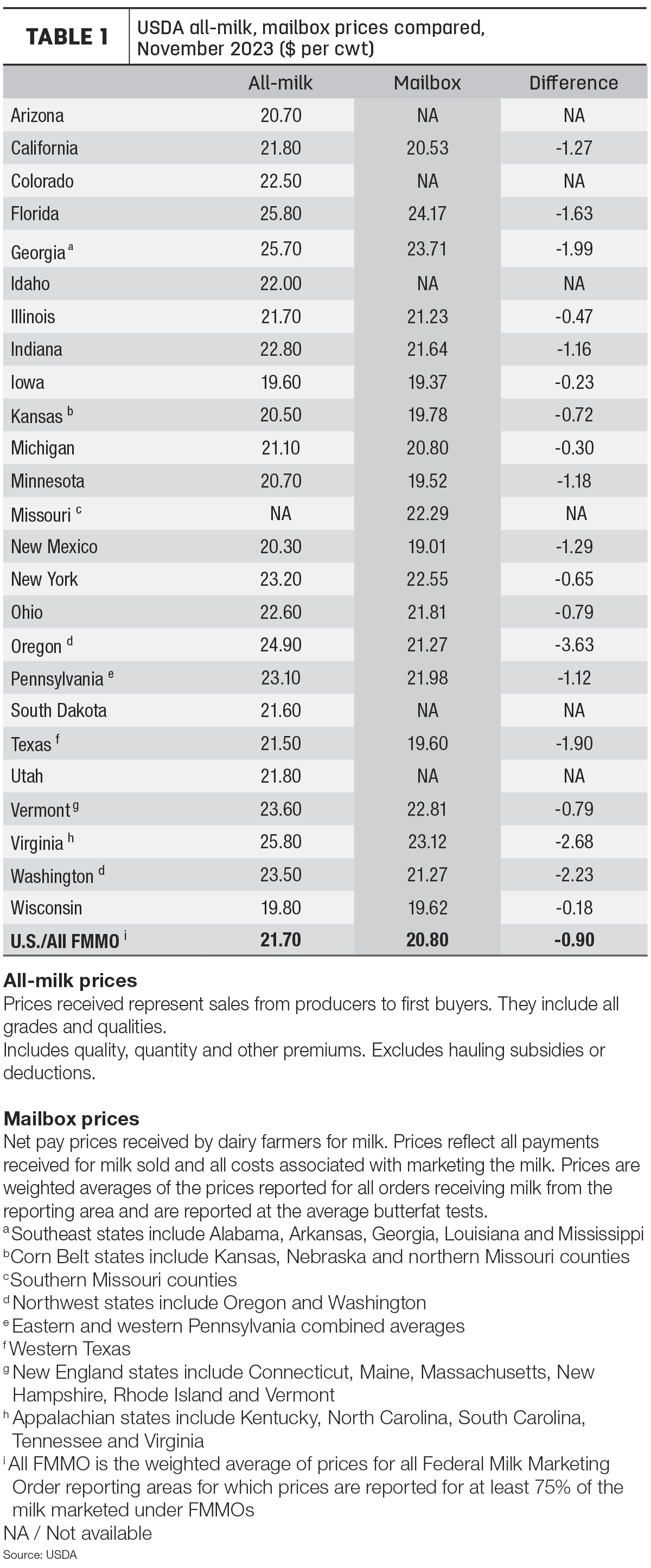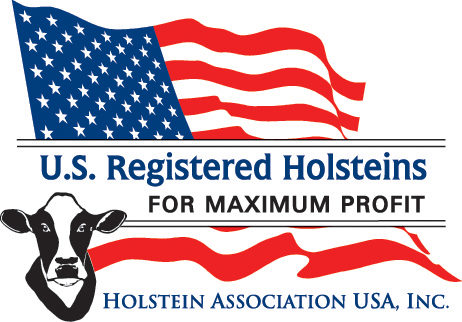Here’s an update on economic factors impacting your dairy’s financial picture as we begin March 2024:
- Congress releases first six budget bills, including agriculture
- All-milk, mailbox price spread widened last November
- March FSA interest rates continue to fall
- Wildfires cause devastating losses in Texas Panhandle
Congress releases first six budget bills, including agriculture
Last Thursday, House and Senate leaders approved a continuing resolution to prevent a partial government shutdown as we turned the calendar to March.
The one-week extension now gives Congress until March 8 to finalize six bills, which include the funding for USDA and FDA.
These first six final funding bills for fiscal year 2024 were released on March 3 and cover Agriculture, Rural Development, Food and Drug Administration; Energy and Water Development; Military Construction, Veterans Affairs; Transportation, Housing and Urban Development; Interior and Environment; and Commerce, Justice and Science.
The Ag-FDA funding bill proposes a $7.03 billion funding level for the Women, Infants and Children (WIC) program, an increase of $1.3 billion. The bill also funds the Supplemental Nutrition Assistance Program (SNAP).
The bill inceases USDA funding by $383 million, through small increases to agencies throughout the department. The bill also adds the USDA to the multiagency Committee on Foreign Investment in the United States (CFIUS) to review and alert purchases of U.S. farmland by China and other foreign entities of concern.
The bill provides level funding ($3.5 billion) to the FDA and provides $50 million to accelerate new medical technology under the 21st Century Cures Act.
Bipartisan leaders are urging their members to quickly pass these bills before the deadline this week so they can move on to the second package of six funding bills now set to expire on March 22.
The remaining bills include Defense; Financial Services and General Government; Homeland Security; Labor, Health and Human Services and Education; Legislative Branch; and State and Foreign Operations.
These bills for fiscal year 2024 will last through Sept. 30. President Joe Biden is expected to discuss his priorities for fiscal year 2025 in his State of the Union address on March 7. The Biden administration will then release its full fiscal year 2025 budget request to the public on March 11, leaving Congress approximately six months to work out the funding bills for next year.
All-milk, mailbox price spread widened last November
National average November 2023 “mailbox” prices averaged about 90 cents per hundredweight (cwt) less than announced average “all-milk” prices for the same month. It was the widest monthly spread since February 2023:
- November U.S. all-milk prices averaged $21.70 per cwt, up 10 cents from October 2023. All-milk prices are reported monthly by the USDA National Ag Statistics Service (NASS). The all-milk price is the estimated gross milk price received by dairy producers for all grades and qualities of milk sold to first buyers, before marketing costs and other deductions. The price includes quality, quantity and other premiums, but hauling subsidies are excluded.
- The November 2023 mailbox prices for selected Federal Milk Marketing Orders (FMMOs) averaged $20.80 per cwt, down a penny from October. The mailbox price is the estimated net price received by producers for milk, including all payments received for milk sold and deducting costs associated with marketing. Mailbox prices are reported monthly by the USDA’s Agricultural Marketing Service (AMS) and generally lag all-milk price announcements by a month or more.
As Progressive Dairy notes each month, there’s a disclaimer of sorts. The price announcements reflect similar – but not exactly the same – geographic areas (Table 1). Also, within states and FMMOs, individual milk handlers and cooperatives may include a wide range of “market adjustment factors” impacting producer-member mailbox prices.
The difference in the two announced prices can affect individual dairy risk management results.

March FSA interest rates continue to fall
Most interest rates on loans through the USDA’s Farm Service Agency (FSA) were lowered for the second month in a row. As we begin March 2024, interest rates for operating and ownership loans (compared to February) are as follows:
- Farm operating loans (direct): 4.875%, down from 5.125%
- Farm ownership loans (direct): 5.25%, down from 5.375%
- Farm ownership loans (direct, joint financing): 3.25%, down from 3.375%
- Farm ownership loans (down payment): 1.5%, unchanged
- Emergency Loan (amount of actual loss): 3.75%, unchanged
The FSA also offers guaranteed loans through commercial lenders at rates set by those lenders. For more information, producers can contact their local USDA Service Center.
Wildfires cause devastating losses in Texas Panhandle
The Texas Panhandle region is facing significant losses, impacting farmers and ranchers profoundly, following a week of wildfires that have burned nearly 1.3 million acres and are still not contained. The Smokehouse Creek Fire, which alone has burned nearly 1.1 million acres, is the largest recorded in Texas and the second-largest fire in the nation’s history.
The Texas Department of Agriculture (TDA) released a statement stating it actively supports farmers, ranchers and residents impacted by the catastrophic wildfires through agricultural relief funds, essential hay and feed resources, the AgriStress Helpline and feeding programs for affected families.
Cattle and crop losses in the Panhandle are significant and infrastructure damage is catastrophic. Even those Texans fortunate enough to save their herd may not have anything to return to but ashes.
Hemphill County has reported over a thousand missing or dead cattle and several dead horses, goats and sheep. Numbers in Hemphill County and other impacted areas are expected to rise as the smoldering fire subsides and assessment can be conducted.
Surrounding communities have stepped up to donate hay and feed resources, to support emergency responder needs, and have provided transportation to haul livestock and hay as needed.
For those seeking assistance or wishing to provide support, more details can be found online for TDA resources, the Hay Hotline and the STAR Fund. To access TDA’s AgriStress Helpline, call (833) 897-2474.







